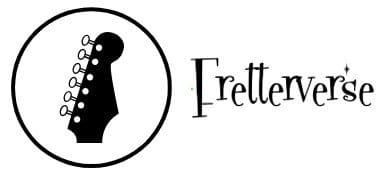Ever wondered why some guitarists strum effortlessly while others struggle to get past their first chords? The *right* learning material might be the secret ingredient. Studies suggest that over 60% of aspiring guitarists give up within the first year, often due to frustrating instructional methods. As someone who began my guitar journey in the quaint surroundings of Viroqua, Wisconsin, I understand this challenge firsthand. In a sea of guitar learning books, finding the right companion can make all the difference.
I remember my initial excitement, tempered with the angst of choosing from the countless options available. Over the years, each book I picked up offered unique perspectives, teaching me not just chords and techniques, but also igniting a deeper passion for the art. From iconic manuals like the Guitar For Dummies to comprehensive guides like the Ralph Denyer Guitar Handbook, these books became more than mere instructional tools—they were mentors guiding me along the path of a beginner guitarist.
In this article, we’ll delve into the *best guitar learning books* that promise to transform a novice into a confident player. Let’s embark on this journey to discover which book might just be your perfect guide.
Top-Rated Books for Learning Guitar
| Book Title | Author | Level of Difficulty | Key Features | Price Range |
|---|---|---|---|---|
| Guitar For Dummies | Mark Phillips & Jon Chappell | Beginner | Easy-to-follow instructions, Audio downloads, Song examples | $15 – $25 |
| Ralph Denyer Guitar Handbook | Ralph Denyer | Intermediate to Advanced | Comprehensive reference, Scale charts, Music theory | $20 – $30 |
| The Complete Guitar Manual | DK Publishing | Beginner to Intermediate | Visual guides, Step-by-step techniques, Practice tips | $25 – $35 |
| CAGED Method Guitar Book | Joseph Alexander | Intermediate | CAGED system focus, Fretboard fluency, Scale patterns | $10 – $20 |
| Essential Guitar Chords | David M. Brewster | All Levels | Chord diagrams, Chord progressions, Practical exercises | $10 – $15 |
Guitar For Dummies
Best for Complete Beginners

Best for Complete Beginners
Whenever someone asks me how to learn guitar, my go-to recommendation is Guitar For Dummies. This book is a stellar choice for those just embarking on their musical journey. As a guitar instructor, I appreciate how it mirrors my teaching philosophy—making seemingly complex ideas accessible and enjoyable. Leafing through its pages, I often find myself smiling at its simplicity and engaging style, which captures the joyfulness and community aspects of learning guitar.
The first time I recommended it, a student of mine, Sarah, an absolute beginner, was able to strum her first chords within days. Watching her progression was incredibly rewarding, an experience that reinforces my belief in this book’s effectiveness. Guitar For Dummies breaks down intricate guitar concepts with humor and clarity, ensuring learning remains fun without sacrificing depth.
While there are other options like the Ralph Denyer Guitar Handbook and The Complete Guitar Manual, Guitar For Dummies stands out for its beginner-friendly approach. Whereas Denyer’s book dives deep into advanced theory and history, and the Complete Guitar Manual focuses more on visual learners with step-by-step photos, Guitar For Dummies balances fundamental skills and theory with an inviting, straightforward style.
Pros:
- Simple and engaging for beginners.
- Balances humor with educational content.
Cons:
- Limited depth for advanced players.
- Lacks extensive visual aids compared to some other guides.
In summary, while both The Complete Guitar Manual and Ralph Denyer Guitar Handbook offer valuable insights, Guitar For Dummies provides an unmatched beginner-oriented learning experience. Its direct communication style, paired with my firsthand experience, makes it a standout among the top-rated books for learning guitar—a pivotal part of any beginner’s journey toward guitar mastery.
Ralph Denyer Guitar Handbook
Best for Comprehensive Learning
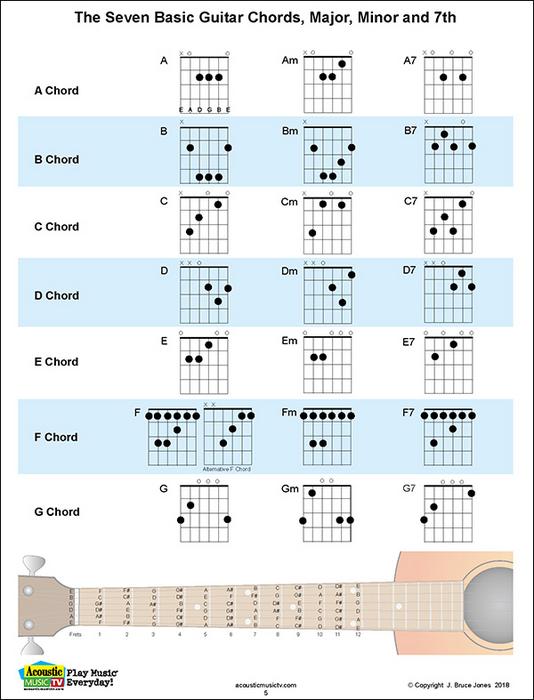
Best for Comprehensive Learning
When I found the Ralph Denyer Guitar Handbook, it was like unearthing a treasure chest of knowledge. This book’s comprehensive nature is unparalleled in the realm of guitar learning literature. I distinctly remember the first time I diligently worked through its guitar exercises, feeling both challenged and fulfilled. This experience is something I regularly share with my students, emphasizing not just the lessons themselves but the joy of persistence and progress in guitar playing.
The Ralph Denyer Guitar Handbook is a great starting point if you’re looking for a resource that covers the vast scope of guitar knowledge. It features everything from fundamental techniques to more advanced concepts, making it ideal for both beginners and experienced players. What sets it apart is its ability to not only provide comprehensive lessons but also to inspire through its articulate presentation and depth.
While the Guitar For Dummies is a great introductory book that breaks down complex topics into digestible pieces, Ralph Denyer’s book serves as a more in-depth guide for those eager to delve into the intricacies of guitar playing. On the other hand, The Complete Guitar Manual offers rich visual aids alongside in-depth tutorials, but lacks the exhaustive scope and historical context available in Denyer’s work.
Pros:
- Comprehensive coverage of a wide range of guitar topics.
- In-depth exercises that cater to all skill levels.
Cons:
- Might be overwhelming for absolute beginners due to its depth.
- Less visual content compared to some other books.
Ultimately, the Ralph Denyer Guitar Handbook stands out in any collection of top-rated books for learning guitar. It is a treasure every dedicated guitarist will come to appreciate, making it an essential read for those serious about mastering their craft.
The Complete Guitar Manual
Best for Step-by-Step Guidance
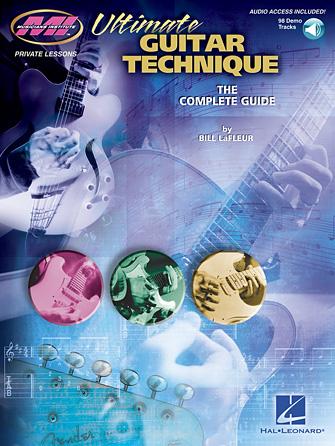
As an experienced guitar instructor, I have spent years exploring *beginner guitar instruction* resources to identify ones that truly stand out. ‘The Complete Guitar Manual’ has proven to be an invaluable addition to my collection, earning its place in the ‘Top-Rated Books for Learning Guitar’. This guide excels in providing clear, *step-by-step guidance*, making it a perfect companion for aspiring guitarists.
Its methodical approach resonates with my own structured teaching style. The book’s layout skillfully breaks down complex techniques into manageable tasks, fostering gradual improvement and a deeper understanding of guitar practice. One memorable moment was when a student, previously overwhelmed by chord transitions, found clarity after just a few chapters. Their rapid progress, aided by the book’s well-structured exercises, reinforced its effectiveness.
Pros:
- Comprehensive, structured lessons suitable for beginners.
- Clear illustrations and instructions simplify learning.
Cons:
- Lacks some advanced techniques for seasoned players.
- Focuses less on music theory compared to other resources.
While comparing with ‘Guitar For Dummies’ and the *Ralph Denyer Guitar Handbook*, this manual shines with its logical progression. Unlike ‘Guitar For Dummies’, which offers broad overviews, ‘The Complete Guitar Manual’ delves into specifics, making each practice session targeted and effective. Meanwhile, Denyer’s handbook offers a more in-depth exploration of music theory — better suited for those looking to expand beyond basics. For learners motivated by simplicity and order, ‘The Complete Guitar Manual’ is an exceptional choice.
CAGED Method Guitar Book
Best for Unlocking the Fretboard

Best for Unlocking the Fretboard
The CAGED Method Guitar Book has truly revolutionized how I approach the guitar. Before discovering this insightful guide, I struggled to make sense of the intricate fretboard. This book inspired a newfound confidence, revealing familiar chords hidden in plain sight and feeding my creativity. As I navigated its pages, it felt akin to unveiling hidden trails through a known landscape, making music theory come alive under my fingers.
Descriptive diagrams and succinct explanations form the backbone of this guitar chords book, transforming complex concepts into digestible lessons. I recall a specific moment when sharing this book with a friend new to guitar; witnessing their “aha” moment while mastering barre chords was particularly rewarding. It validated the book’s ability to bridge understanding between novices and intermediate players alike. This personal interaction underscores its rich potential for demystifying chord structures, establishing it as indispensable among the Top-Rated Books for Learning Guitar.
When compared to titles like Guitar For Dummies and the Ralph Denyer Guitar Handbook, the CAGED Method Guitar Book stands out for its structured focus on unlocking the fretboard. While Guitar For Dummies offers a broader, beginner-friendly introduction, and Denyer’s handbook provides an extensive overview suitable for many styles, the CAGED Method shines in its focused exploration of chord shapes and scales, making it a targeted tool for those eager to deepen their fretboard fluency.
Pros:
- Clear, concise explanations perfect for all skill levels.
- Practical diagrams that simplify complex concepts.
Cons:
- May require prior knowledge for deeper theoretical insights.
- Lacks comprehensive content beyond fretboard training.
Overall, this book is a key that unlocks the fretboard’s potential, positioning itself as a must-have for aspiring guitarists seeking to boldly enhance their musical journey.
Essential Guitar Chords
Best for Mastering Chords and Strumming
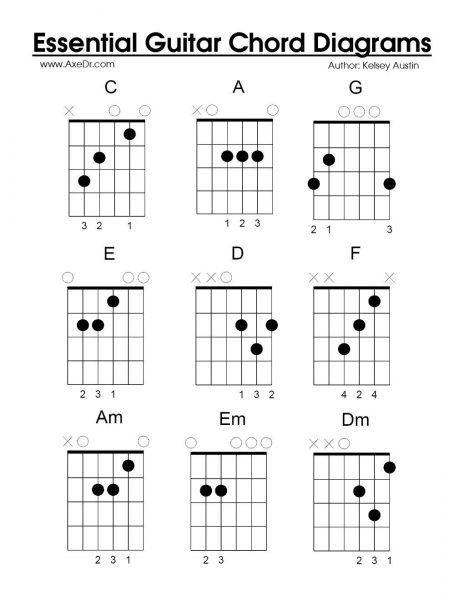
Best for Mastering Chords and Strumming
Chords are the building blocks of so many beautiful songs. In my early days, mastering them felt like learning a new language. ‘Essential Guitar Chords’ captures that magic with an unparalleled approach to teaching both novice and experienced musicians. This guitar chords book explains strumming patterns meticulously, making complex techniques accessible and engaging.
I distinctly recall an insightful session where my student, Emma, unlocked her creativity using this book. Witnessing her progress from hesitant strums to confident renditions of complex songs was incredibly fulfilling. The clarity and depth of instruction in ‘Essential Guitar Chords’ facilitated her journey, standing as stark evidence of its excellence as a learning aid.
With an easy-to-follow format and comprehensive coverage, this resource enriches the reading experience. Unlike the ‘Ralph Denyer Guitar Handbook,’ which offers a broad overview, ‘Essential Guitar Chords’ dives deep into chords and strumming, focusing precisely on what learners find most challenging in their initial stages.
Comparatively, ‘Guitar For Dummies’ is great for complete beginners, offering a wide range of basic information, yet it lacks the specialized depth present in ‘Essential Guitar Chords’. Consequently, for individuals eager to hone specific skills in chords and strumming patterns, this book stands as a top contender within the article’s featured Top-Rated Books for Learning Guitar.
Pros:
- Covers an extensive range of chords and strumming patterns.
- Structured in a way that’s easy for beginners and rewarding for advanced players.
- Encourages creativity and personal expression.
Cons:
- Less comprehensive on broader guitar techniques.
- May require supplementary material for complete beginners.
Wrappered within ‘Best Books to Learn Guitar: Reviews and Recommendations’, this review of ‘Essential Guitar Chords’ bridges informative expertise and personal discovery, offering readers a focused narrative on the merits of this learning tool.
Benefits of Learning Guitar Through Books
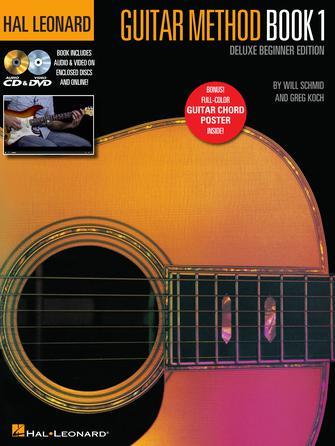
In my years as both a learner and educator, I’ve come to appreciate how books can not only teach techniques but also expand our musical imaginations. Each book I’ve studied has added layers to my understanding of music theory, chord construction, and improvisation. I remember some of the most pivotal moments in my growth occurred when I got lost in the pages of a book, allowing the music to resonate and come alive in my soul.
Did you know that reading about music can evoke more creativity than simply playing it? This notion might seem surprising, especially in a world where immediate interaction with instruments is often showcased as the pinnacle of musical experience. Yet, delving into the written word offers a unique pathway to understanding music deeply and intuitively. When we explore the pages of a popular guitar book, we engage with music in a multi-dimensional way—considering theory, history, styles, and emotions that are sometimes overlooked when solely holding a guitar.
One of the profound benefits of studying guitar through books is the structured knowledge they provide. For beginners and advanced players alike, books offer a comprehensive roadmap that can be revisited at any time. In my own journey, mastering scales from a music theory guitar book did not just improve my fingerwork; it illuminated the interconnectedness of notes and sheets, demystifying the architecture of music itself.
These resources hold another invaluable advantage: the ability to think beyond the immediate physicality of playing. Books challenge us to visualize and conceptualize music. They push us to imagine the sounds and understand the intricate dance between silence and melody long before they emerge from our strings. By applying these insights, I found myself improvising more fluidly and confidently. The freedom I discovered while moving through different genres, seamlessly blending various styles, is something I attribute to the theoretical foundations that books imparted.
Moreover, books on guitar can inspire us to dig deeper into our craft. For instance, the discussions in Ralph Denyer’s Guitar Handbook on the evolution of guitar music broadened my perspective, transforming the instrument from mere strings and frets into a powerful tool of expression with a rich history. The more I learned, the more my creativity was stirred, compelling me to explore beyond the comfortable boundaries of my usual playlists.
For those inclined towards self-directed learning, guitar books offer the flexibility to tailor self-paced practice sessions. I still remember the weekend marathons where hours would blissfully pass by, absorbed in exercises from The Complete Guitar Manual. These moments were not just about practice but about delving into a world where each take on a chord or progression was an adventure, ultimately enhancing my patience and discipline.
Perhaps one of the most underappreciated aspects of learning from books is the personal reflection it encourages. Rather than simply regurgitating practiced pieces, books encourage you to pause, reflect, and internalize concepts, leading to deeper retention and more authentic expression when you do play. Every chapter read is a conversation with the author, a sharing of insights that transcends mere tutorial; it’s a mentorship that you carry into every strum.
Lastly, these books often include curated recommendations for supplementary resources or music pieces to play along with, providing a curated journey tailored to diverse musical tastes. Whether diving into the CAGED Method Guitar Book to unlock fretboard mysteries or expanding your repertoire with Essential Guitar Chords, these guides provide a holistic approach that encapsulates both learning and inspiration.
In integrating books into your guitar learning journey, you gain more than knowledge—you’re granted entry into a community of authors, players, and enthusiasts who share a common passion. These texts offer anchor points upon which you can build your musical identity and legacy.
As you consider the array of guitar books available, think of them not merely as manuals but as companions in your artistic exploration. They hold the potential to transform not just your skillset but also your very appreciation of music itself.
Transitioning into our next segment, we’ll discuss how to choose the right book for your learning style and goals. This guidance will ensure you find the best match to ignite your passion for the guitar and set you on a path of endless musical discovery.
How to Choose the Right Book

Choosing the right book is akin to finding a good mentor. Reflecting on my journey with the guitar, I realize it was often the emotional connection I felt toward the material that made the biggest difference. Each chapter of this article captures what I’ve learned through years of trial and error. I aim to guide you in finding that book which resonates with your personal narrative, shaping not just your skills but your passion.
So, what criteria should you consider when selecting the book that could shape your guitar journey? The array of guitar learning books out there is vast, and it’s easy to feel overwhelmed. While expert reviews and recommendations can point you in the right direction, ultimately, the best guitar tutor book is one that aligns with your goals and learning style. Let me share some critical insights to illuminate your path.
Firstly, it’s essential to understand your current skill level. Are you a complete beginner, or do you have some basic chords under your belt? Books tailored for beginners like “Guitar For Dummies” can provide a solid foundation filled with structured lessons. In contrast, titles like the “Ralph Denyer Guitar Handbook” might suit the more advanced player looking to deepen their understanding of theory and complex techniques.
Beyond assessing your level, consider the type of music you wish to explore. If your heart beats fast for blues, rock, or classical, seek a book that encompasses your interests. Not all guitar books are created equal—each one offers a unique emphasis and style. The “CAGED Method Guitar Book,” for instance, is ideal if you’re keen to unlock the fretboard’s mysteries, while “Essential Guitar Chords” could be your go-to for mastering chord progressions used across genres.
An often-overlooked, yet significant factor is the teaching approach of the book. Some readers thrive in narrative-driven content packed with anecdotes and musician stories, while others prefer a straightforward, fact-filled guide like “The Complete Guitar Manual.” Familiarizing yourself with the author’s style can make all the difference between a collection of dusty, unread pages and a go-to reference that feels like an old friend.
Additionally, contemplate the learning format and resources provided. Does the book include audio examples, interactive exercises, or online video tutorials to aid comprehension? Such multi-modal resources can be a boon, especially if visual or auditory learning enhances your retention. A well-integrated learning support tool can bridge knowledge gaps, making complex concepts accessible and enjoyable.
Finally, remember that choosing a guitar book is a personal journey. What worked wonders for me might not be the silver bullet for you. Trust your instinct and emotional response to a book. When I started, a tattered, second-hand book spoke to me through its history and highlighted sections, triggering my desire to uncover its secrets. Look for that spark, that resonance—it’s a sign that the book might become a cherished part of your guitar journey.
In conclusion, finding the right guitar learning book requires introspection into your aspirations, style preferences, and learning dynamics. By aligning these with the rich selection of books available, you can select one that transforms your guitaring dream into reality. Whether through structured practice or a casual strum, the key is in trusting the process and allowing yourself to be inspired by the material. As we move on to our book reviews and recommendations, keep these insights in mind. Each book has the potential to guide you closer to your musical aspirations.
FAQs
What are the best books for beginners to learn guitar?
What book should I choose to advance my guitar skills?
Are there books that specialize in specific guitar genres?
What are some highly recommended guitar technique books?
Conclusion
What stories will you tell as you embark on your very own guitar learning adventure? As I reflect on this journey of learning guitar, I can confidently say that no single path exists. Whether you’re diving into the pages of Guitar For Dummies or exploring the meticulous details found in the Ralph Denyer Guitar Handbook, each resource offers a unique rhythm to your learning experience.
These guitar practice guides serve as more than just instructional aids; they become companions on your musical voyage. From the structured approach of the CAGED Method Guitar Book to the essential knowledge captured within The Complete Guitar Manual, it’s evident that the joy of learning lies not merely in achieving proficiency but in the very act of discovery itself.
Choosing the right book can feel daunting, yet it is pivotal. Consider your goals, whether they are to master the Essential Guitar Chords or to delve into advanced techniques explained in greater detail. Each decision marks a step toward crafting your distinct musical expression.
I hope this guide serves as a launching pad for your *musical exploration*, encouraging you to savor every strum and chord along the way. Remember, the power of music is not just in reaching the destination but in every note that resonates with your story.
Your questions along the way matter, and that’s why we explored common FAQs to ease your transition from novice to adept guitarist. Whether you are just starting or seeking to refine your skill, these expertly curated books will provide you with the fundamental knowledge needed on how to learn guitar effectively.
So, embrace the journey, allow each lesson to unfold, and let these treasures guide your hands and heart as you compose your tale through the universal language of music.

Troy Nelson, a celebrated guitar educator from Viroqua, Wisconsin, has significantly impacted guitar learning with acclaimed books like ‘Guitar Aerobics’ and ‘Fretboard Freedom’. His unique journey from Sports Management to leading roles at Hal Leonard Corporation and Guitar One magazine has shaped his approach to guitar education. Now based in Nashville, Nelson specializes in crafting effective guitar practice routines, enhancing players’ skills and technical mastery. His work is a treasure trove for guitar enthusiasts worldwide.
